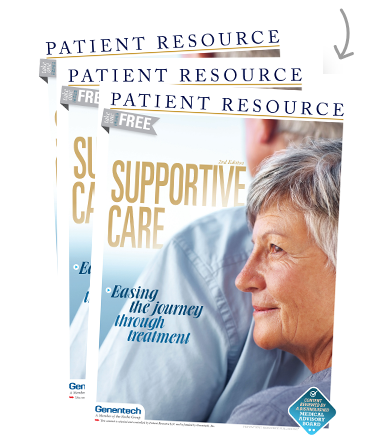Infusion-Related Reactions
An infusion-related reaction can occur when your body has a strong, adverse immune response to a treatment that is administered intravenously (IV) into a vein, subcutaneously (under the skin) or by injection. Chemotherapy, targeted therapy and immunotherapy can cause this reaction.
Reactions are generally mild, such as itching, rash or fever. More serious symptoms, such as shaking, chills, low blood pressure, dizziness, breathing difficulties or irregular heartbeat, can be serious or even life-threatening without medical intervention.
When do these reactions occur?
Infusion-related reactions most frequently occur soon after exposure to the drug, sometimes even as you are receiving the infusion. Your nurse will be watching for signs of a reaction while you are there. However, they can occur days or weeks later, which makes it important to be vigilant about watching for the symptoms.
How you can help manage an infusion-related reaction
These reactions are often difficult or impossible to avoid, so being able to recognize the following symptoms and report them immediately is important:
- Itching
- Rash or hives
- Swelling of the tongue, lips or eyelids
- Redness on the face and neck area, also called flushing
- Fever or chills
- Cough
- Nausea
- Muscle or joint pain
- Swelling (most common in the hands, legs, ankles and feet, but can occur in any part of your body)
- Shortness of breath
When should you call your health care provider?
Any type of medication can cause a reaction, but certain drugs tend to have a higher reaction potential than others. Before treatment begins, ask whether the drugs in your treatment plan put you at risk for a reaction, what to do if one occurs and which reactions require immediate medical attention.
In addition, a personal history of reactions to medications, foods or something in the environment can put you at higher risk for a severe reaction to your cancer treatment. If you have had a severe reaction in the past or you think you may be at risk because of allergies, tell your health care provider before treatment begins.
Contact your health care provider as soon as you experience symptoms of an infusion- related reaction.
As a safety precaution, carry information about your diagnosis and the medications included in your treatment plan with you at all times. Also include the contact information for your health care provider and your cancer center. This is critical should you have an emergency or experience a side effect and you are not able to contact or seek care from a provider who is familiar with your treatment.



